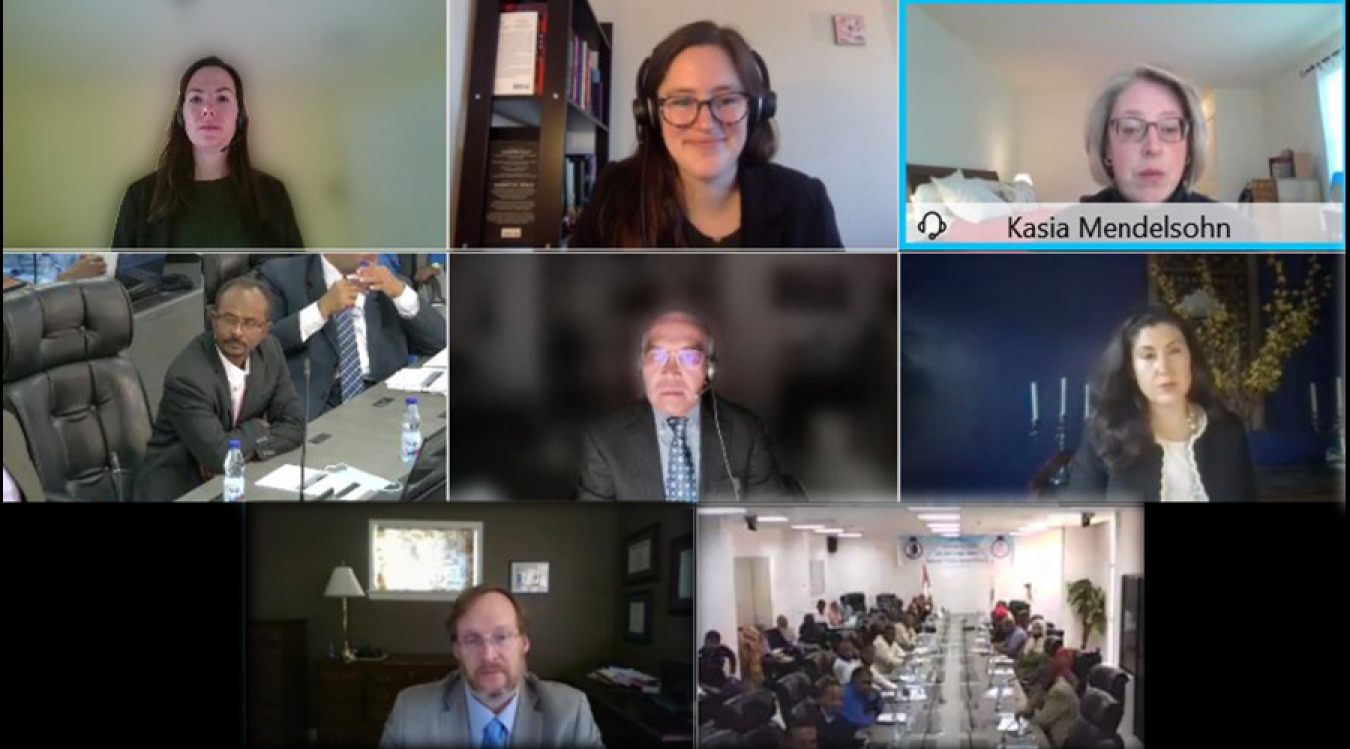NNSA and the Sudanese Nuclear and Radiological Regulatory Authority held a virtual workshop in support of Sudan’s efforts to effectively regulate nuclear technology and materials.
National Nuclear Security Administration
April 8, 2021
NNSA and the Sudanese Nuclear and Radiological Regulatory Authority (SNRRA) held a virtual workshop in support of Sudan’s efforts to effectively regulate the safe, secure, and peaceful uses of nuclear technology for medicine and human health; scientific research and education; agricultural, environmental, and industrial applications; and energy.
The event followed initial consultations in 2019, when NNSA representatives visited Khartoum, Sudan’s capital, to discuss the importance of international nuclear safeguards with SNRRA. Sudan does not have a nuclear power program, but it does use radioactive and nuclear materials in its medical, agricultural, environmental, and industrial sectors. The country plans to pursue nuclear energy in the coming decades to meet its growing demand for electricity, with a capable regulatory body as a precursor.
The United States is committed to supporting Sudan as we embark on this new era in bilateral relations. We are very pleased with the progress made in recent months.
The virtual workshop is part of a new era of cooperation with the United States.
“This is an important time for engagement in U.S.-Sudan relations, especially in the political and economic realms,” noted NNSA’s Acting Deputy Administrator for Defense Nuclear Nonproliferation Kasia Mendelsohn during the workshop. “The United States is committed to supporting Sudan as we embark on this new era in bilateral relations. We are very pleased with the progress made in recent months.”
During the workshop, NNSA and SNRRA discussed best practices for international nuclear safeguards, a key element of the nuclear nonproliferation regime, which helps prevent the spread of nuclear weapons and facilitates access to the peaceful uses of nuclear energy under the Treaty on the Nonproliferation of Nuclear Weapons (NPT). Sudan recently strengthened its safeguards agreement with the International Atomic Energy Agency (IAEA) by modifying its Small Quantities Protocol. This modification enhances the IAEA’s ability to verify the country’s peaceful uses of nuclear material and represents an important step in Sudan’s progress toward adhering to the IAEA’s highest standard of safeguards verification.
The workshop also provided participants with training on international principles of nuclear security designed to help nation-states prevent nuclear theft, sabotage, and terrorism. NNSA representatives discussed the importance of developing a strong nuclear security infrastructure based on regulations, inspections, threat assessment, target identification, and a training program to implement a nuclear security regime. NNSA participants also discussed security considerations for nuclear power reactors.
At the conclusion of the event, NNSA and SNRRA identified areas for continued engagement on nuclear safeguards and security and expressed enthusiasm for continuing to strengthen the implementation of nonproliferation and nuclear security regimes.

